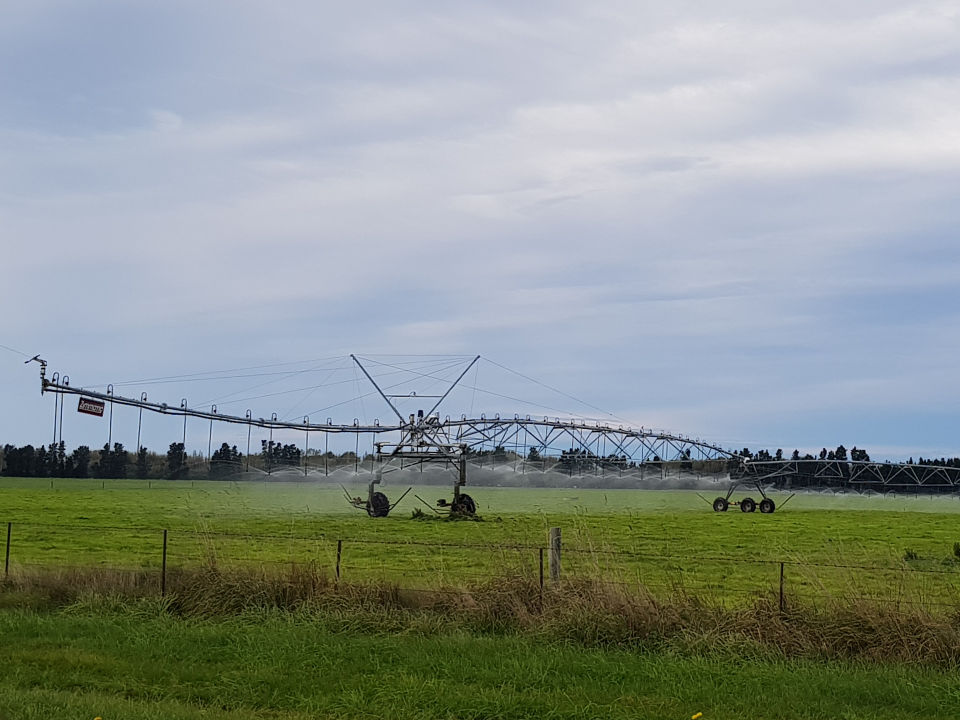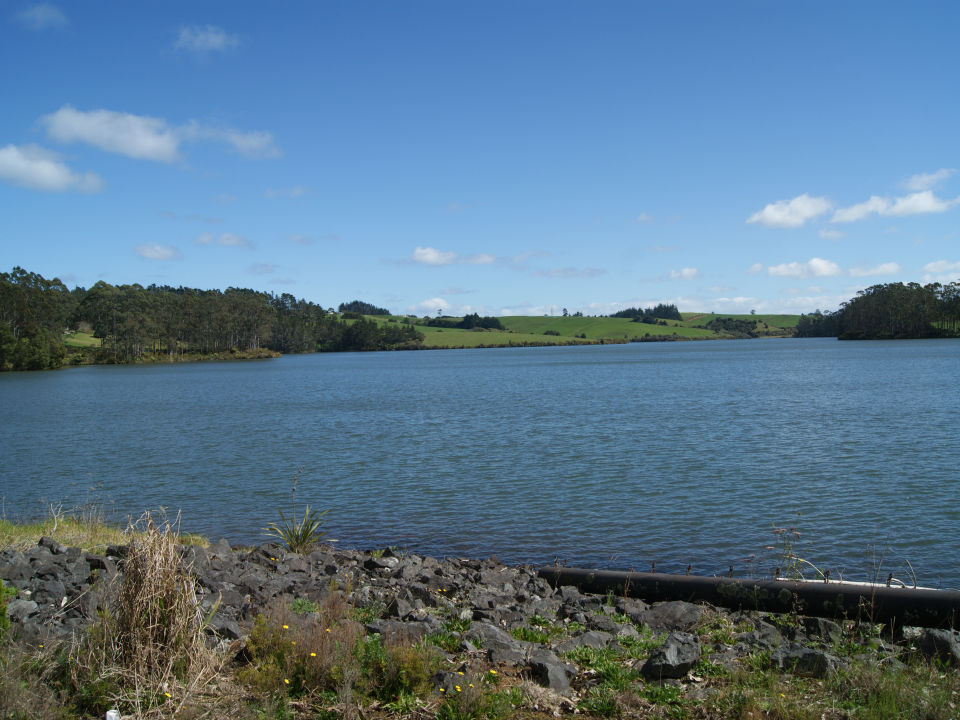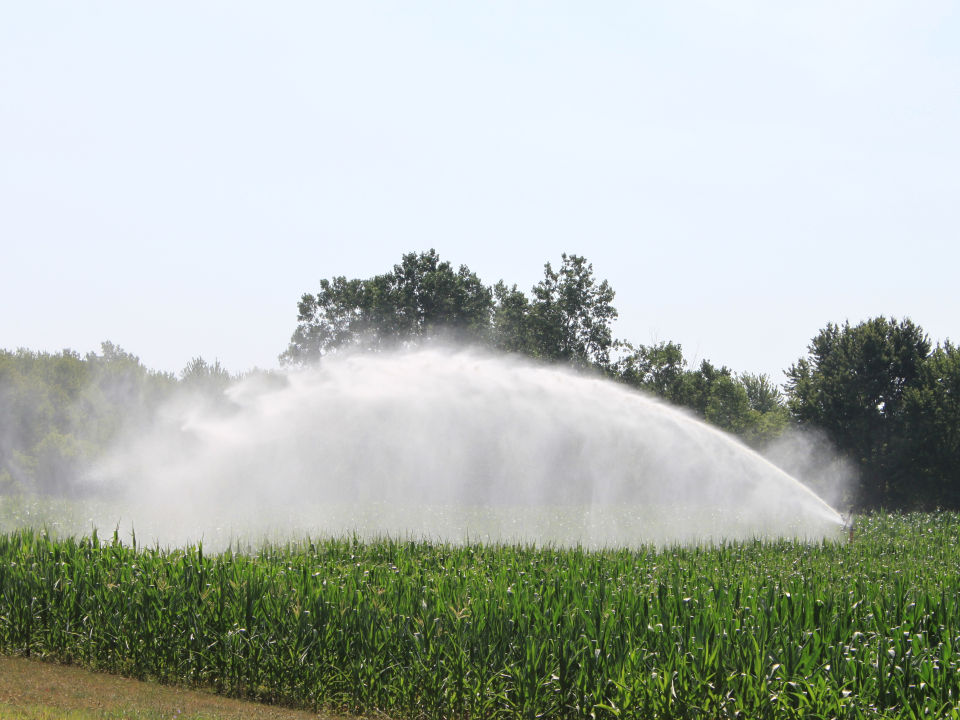Irrigation defined
Irrigation is the artificial watering of land that does not get enough rainfall. Sometimes we use basic irrigation at home. You might use a hose or sprinkler to water the garden. Large scale irrigation is where market gardeners, farmers, and orchardists apply water at important times. This helps plants grow and produce quality crops.
Irrigation water can come from nearby rivers or groundwater. It can also come from storage ponds made to collect river water or rainfall during winter. This water goes to market gardens, farms and orchards.
Why is irrigation important?
Feeding the world uses a lot of water. Farmers need water to produce many of our daily food items. In some areas of New Zealand, the land doesn’t get enough summer rainfall. These places need irrigation to produce high-quality food.
Sometimes farmers need irrigation because of a very dry season (a drought). It could also be to make sure some food crops have the right amount of water during an important growth stage.
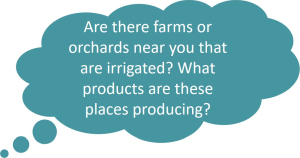
The diagram below shows how crops receive and use water.
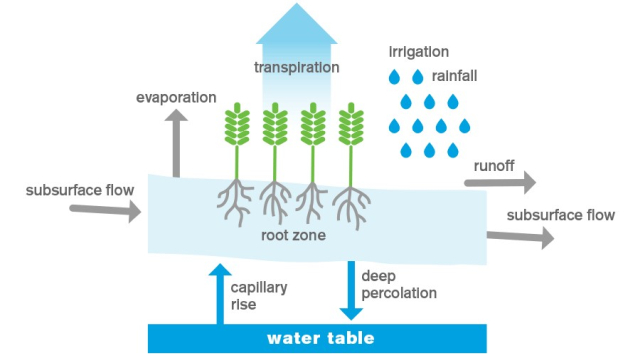
- For more on why we have irrigation, watch this video from Irrigation NZ - https://www.youtube.com/watch?v=gTrs130ebVo
- Ready for a quiz? Try the What is Irrigation? activity.

